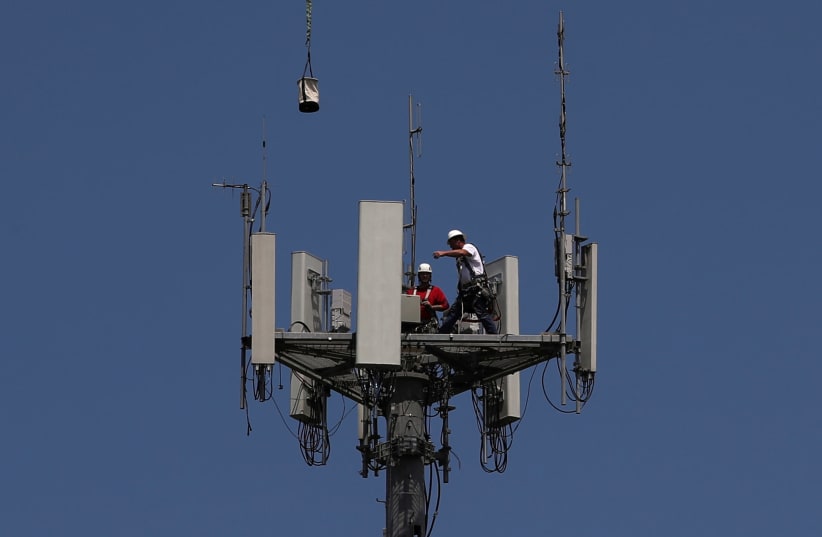The fifth generation of cellular networks, 5G, officially launched in Israel on Tuesday. It offers customers faster browsing speeds on their smartphones – if they can connect to it.
Following some setbacks over tenders and upgrades, the network officially launched across the country. It is offered by Partner, Hot Mobile and Pelephone, the tech website Geektime reported.
Communications Minister Yoaz Hendel awarded the three companies licenses to operate the new network on Tuesday following the tender bids. Partner and Hot Mobile bid together, while Pelephone submitted a separate proposal. Unsuccessful parties included Cellcom, Golan Telecom and Xfone.
Partner and Hot Mobile have released two similar packages for the 5G network. The first offers 500 gigabytes of Internet surfing for NIS 60 per month for five years. The second offers a terabyte (1,000 GB) for NIS 70 per month for five years. Together, the providers say they have installed 250 5G sites throughout Israel, with more being added regularly.
Pelephone offers 200 GB of Internet surfing for NIS 50 per month or 500 GB for NIS 60 a month. Hundreds of sites have been established in 150 locations across Israel, including Tel Aviv, Haifa, Ra’anana, Dimona and Kiryat Shmona, it said. There is at least one 5G mast in every city and town in the country, it added.
Customers who already own 5G-enabled smartphones will be able to access the new network at no extra cost, Partner and Pelephone announced.
“Israel is at the bottom when compared to other countries when the quality of cellphone communication or high-speed Internet is considered,” Hendel told N12 news site.
“Communication infrastructure is the new frontier,” he said, likening it to the early days of Zionism when Jewish farmers plowed their fields and settled the land.
The higher speed of Web connection will help children to study at home and hi-tech employees to work remotely, Hendel said.
Comparing the early days of Zionism, when territories were established by Jewish farmers ploughing their fields, to our time, he said that now, “communication infrastructure is the new frontier.” He described how the higher speed of the web connection will help children studying from home and hi-tech workers now unable to work in their offices.

